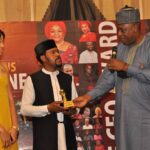Research is very crucial in Public Relations practice. Public Relations campaigns can fail to yield the desired results if not anchored on painstaking research. Effective planning, evaluation and execution of public relations programmes, therefore, require one form of research or the other. For this reason, practitioners, of a necessity, need to understand research in order to excel.
Public relations essentially has to do with positive, systematic actions and communication to influence people’s attitudes, opinions, beliefs, interests and behaviour in a given or desired direction to build credibility and lasting goodwill among diverse publics, hence, it is imperative that practitioners device ways and methods of communicating with these publics. Research, therefore, offers the leeway to ascertain which communication strategy best suits which public.
Though conventional public relations practice has to do with conventional communication research which involves systematic, controlled, empirical and critical investigation of the relationship between existing variables through applied, pure or basic and introspective research using quantitative or qualitative methods to arrive at the strategy to gain and sustain its publics’ goodwill and trust, there are however unconventional methods of communication research that are geared towards achieving the same goals.
It is, therefore, unconventional communication research practice that this article seeks to address.
Unconventional or informal communication research is the art of talking, asking questions and listening to informal conversations aimed at fact-finding, and public relations practitioners mostly rely on informal methods when engaged in simple fact-finding.
This is done through personal contact to monitor internal and external environments, track public opinion concerning emerging issues, exchange of ideas and concerns and address potential areas of conflict with target audience members before they become problems. It provides PR organisations with quick and inexpensive ways to listen to critical publics, especially community members, consumer groups and government regulators.
The data yielded from informal research can be used to examine or revise organisational policy, craft messages in the phraseology of publics, respond to trends in an industry, include the values or priorities of publics in new initiatives and numerous other derivations. Contacts may help practitioners gain insight before they conduct a formal survey or help them understand survey findings that are surprising or counterintuitive. Unconventional communication research methods generally are useful for exploring problems and for pretesting ideas and strategies.
Information in this type of research is collected on an ongoing basis by most public relations managers, as well as reading e-mails, receiving telephone calls from customers or comment cards and other informal methods, such as scanning the news and trade press.
Another strategy is experts or professional contacts. Practitioners keep in regular contact with their peers, friends in related fields and others who typically possess wealth of useful experience and knowledge, for instance, planning, implementing and promotion of new programmes.
Recognised opinion leaders are another source of informal research method. This group includes members of states or local governments, editors and reporters, leaders of special-interest groups, teachers and educational leaders, leaders of community groups, union leaders or trade association managers.
In this case, experts’ opinions and insights are useful and important but are not generalisable to a more broad audience. However, these people because of their positions, affiliations and knowledge, do not necessarily reflect the knowledge or opinions of the majority of citizens likely to make up a targeted public.
Advisory boards, standing committees, specially appointed panels and similar bodies provide organisations with specific direction, help them plan and evaluate their programmes and events, identify and respond to feedback from the publics they serve. Public relations professionals often serve on the advisory boards of local nonprofit organisations to help plan and direct their media relations and special events projects.
Field reports of field representatives such as district agents, regional directors or sales and service people usually file in routine reports that may be useful to PR organisations, especially if agents make notes of customers’ questions and concerns.
It is important that supervisors encourage their field agents to follow up on complaints and undertake related activities that will help them to monitor and evaluate an organisation and its standing among target audience members.
However, they should recognise that the information provided by field representatives has limitations, as they do not talk to a random sample of targeted audience members and so their observations and suggestions are based on selective information.
Community relations specialists may attend community forums or other public meetings to better understand issues of concern to vocal community citizens. Organisational managers should not conceal their presence at such meetings but should not be vocal.
Those who attend these meetings should report useful information back to their organisations so that managers can consider the need for additional research and develop strategic response to emerging issues or other situations.
Libraries are another area of informal research. They contain numerous books and other publications for the PR practitioners to research from, due to their potential benefits and ease of use to campaign planners.
The internet is not left out because it is an instantaneous source of information that allows organisations to conduct competitor research, place key documents online to promote themselves, build customer relationships, and sell products and services.
PR practitioners keep track of the media and use media clips and files to follow and understand news coverage to help evaluate communication campaign outcomes and to attempt to get a sense of public opinion based on reporters’ stories.
From the foregoing, it is important to note that unconventional communication research methods typically suffer from several limitations that make them difficult to use with confidence. This is the reason researchers consider them informal and casual.
However, practitioners must interpret results carefully since they are the opinions of a few people and should not give them the full weight of scientifically conducted, formal opinion polls. This therefore means that practitioners should use informal research to complement formal research methods, rather than to replace them. This provides them with a variety of research results they can use to support the planning and execution of their programmes.
Unfortunately, PR practitioners may rely on unconventional communication research exclusively because of limited budgets and lack of time. In these situations, since no research method is infallible, it is wise for managers to take every precaution in interpreting and using research results correctly.
Onobe and Wyorkson are with Bingham University, Karu, Nasarawa State

 Join Daily Trust WhatsApp Community For Quick Access To News and Happenings Around You.
Join Daily Trust WhatsApp Community For Quick Access To News and Happenings Around You.


